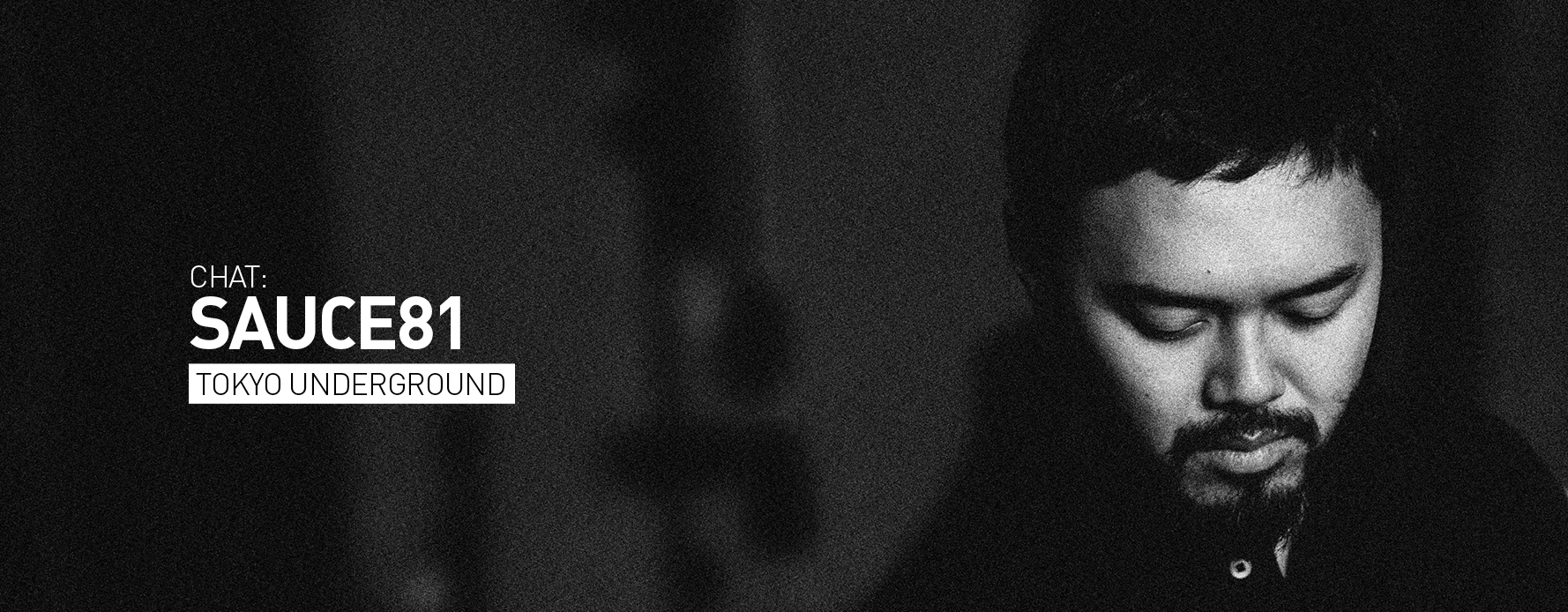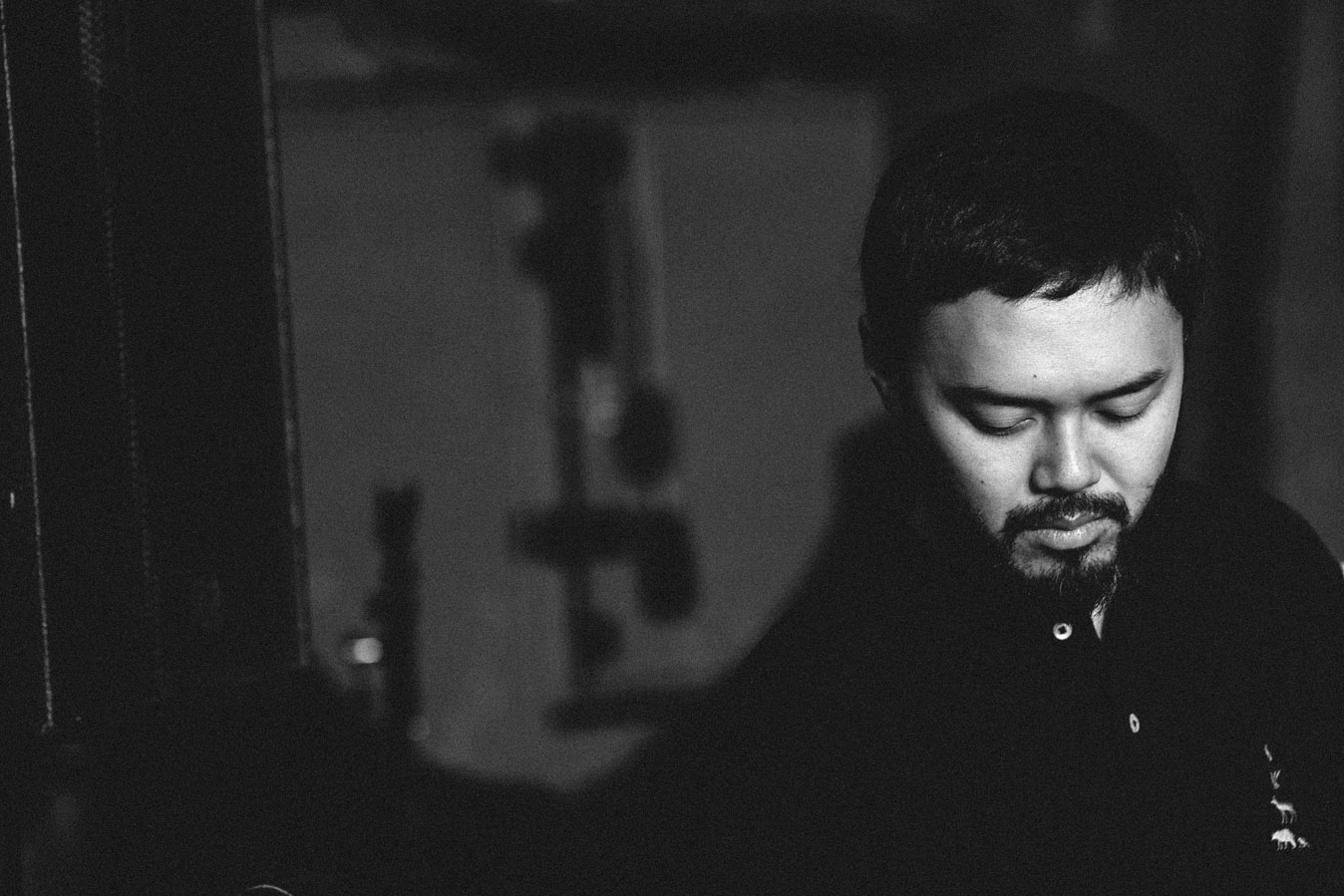sauce81: Hot Sauce Time Machine
 Thirsty for JUICE content? Quench your cravings on our Instagram, TikTok and WhatsApp
Thirsty for JUICE content? Quench your cravings on our Instagram, TikTok and WhatsApp

With vintage beats and a rugged textural aesthetic to complement his magisterial beard, you’d be forgiven for thinking that sauce81 was pulled from another generation. Renowned primarily for his prowess in injecting a healthy dose of funk and soul into anything he touches, he’s also an adept at translating visual qualities into aural ones. He’s been one of the primary propagators on Japan’s underground scene over the past few years, and JUICE has a chat with him about Cosmopolyphonic, playing in a live band setting, and smartphone apps…
Cosmopolyphonic has grown by leaps and bounds since you started it back in ‘09. How has the whole experience been, in relation to your original goal of introducing Japanese artistes to the world through the platform?
Actually, I’m not the main person on Cosmopolyphonic any more so I can’t really say much about what’s going on now, but when we started it, it was in the MySpace era – before SoundCloud, Twitter, Mixcloud, Bandcamp, etcetera. We used PodOmatic which was not the most major platform, but it was one of the few ways to publish DJ mixes and radio style podcasts. But after SoundCloud, Twitter, and Mixcloud came out, I felt like half of what we were doing was accomplished. Everyone can promote their music and share their tastes in a much easier way now – and I think the younger generation is much better at using these tools.
Are there any local projects that you’re especially looking forward to in the next few months?
I’m more focused on my own productions for now, but I hope many Japanese artistes would apply for RBMA 2015 in Paris since we had it in Tokyo last year.
Japanese producers and artistes are starting to step out into the global scene more and more, with the underground scene in big cities such as Tokyo being likened to that of Paris and New York. From an insider’s point of view, how is the Japanese scene doing?
Compared to the ‘90s and early ‘00s, it’s not so rich I guess. There were people like DJ Krush, Ken Ishii, Fumiya Tanaka, Nobukazu Takemura, U.F.O., and these other DJs/artistes reaching overseas already back then. In the late ‘00s it wasn’t so healthy because of so many reasons, but now I think it’s starting to come back. At the same time, I feel that there’s a need for a major shift to something different. Anyway, I like what the juke/footwork guys are doing, and the whole new generation has a lot of energy hidden underground, so there’s a lot to keep an eye on.
Let’s talk about your own music for a bit. Tell us about the origins of your N’gaho Ta’quia moniker and project.
It’s an homage to my musical roots; funk, jazz-funk, and soul music from the ‘70s in a soundtrack format – to a movie that never existed. I flipped my hometown’s name and came up with this moniker. There’s a story written inside of the cover and the artwork by TOKIO Aoyama who is from my home area, which made this album something even meaningful. It’s all about my roots.
We know that you come from a very varied musical background, where your exploits include being involved in a rock band and a gospel group. Will we see you back in a non-electronic setting anytime in the future, or has it been engrained into your musicality already?
Everything that I’ve experienced is in my music, more or less. But yes, I’m working on a band with songs – I mean singing and playing live instruments. Hopefully it’ll come out later this year.
Your tunes often contain many leftfield elements and embellishments that aren’t present in many contemporary producers’ arsenal of sounds and compositional habits. What inspires you to experiment and push boundaries in a sonic sense?
I just listen to Marvin Gaye and Prince a lot. Stevie Wonder, Herbie Hancock, Sly, and Mizell Brothers come after that. And of course, hip hop, house, techno, dub, electronic, experimental, and what not give me bunch of ideas, but I guess it’s the way of Miles Davis, John Cage, and some of those giants that makes me want to take the musical journey, and created a whole new world and timeline like Sun Ra. Technically, recording with microphones has been something very exciting.
You seem to have an affinity for using raw drums as samples in a lot of your recent production. Any reason for this choice as opposed to straight-up electronic 808 kicks and snares?
If you go through my SoundCloud, you can hear some 808s and drum machine sounds. And I think drum machine [sounds] are raw too. But compared to the trend, I don’t use it like a lot of the producers do. I usually record handclaps, finger snaps, and bunch of percussions and layer them on the drum kits, which brings in the rawness. I like to have air in my production, so I use the microphone a lot. On the N’gaho Ta’quia project, there are drum samples, but still a lot of recorded material layered and this project was made four, five years ago, so it’s actually not so new.
What has been your favourite advancement in musical technology (VSTs, DAWs, hardware, etc.) over the past few years?
iPhones and apps, I guess. A drum machine app called FunkBox is my favourite. I ended up buying the original TR-606 and recently got a RZ-1, but I still want some of those vintage drum machines though.
Ever since your graduation from the Red Bull Music Academy, you’ve constantly been involved with the project – touring and holding talks on behalf of the project in places around the globe. What are your thoughts on how the Academy has evolved over the past few years since you were a participant?
I can only say this from my point of view as someone based in Japan. When I participated in 2008, not many people knew about RBMA in Japan, so when I came back I had to explain what a great project it is one by one. But after that, I think the rise of social media and online music magazines pushed it further out. Now that we had it in Tokyo last year, everyone that’s into electronic music knows about it. Having a whole month of RBMA in your city is a game changer. It might have not changed anything yet, but I’m sure it’s inspired a lot of people and has highlighted some problems and challenges that Tokyo has to look into.
What can we expect from Sauce81 (or N’gahoTa’quia) in this coming year?
There’s a sauce81 7” coming out soon. Also I’m working on bunch of collabs this year. One is with Grooveman Spot on Jazzy Sport as 77 Karat Gold, releasing a 12” soon and currently working on a full album. Another one is with Shing02, and also the band project plus few more ideas floating around.


 Get Audio+
Get Audio+ Hot FM
Hot FM Kool 101
Kool 101 Eight FM
Eight FM Fly FM
Fly FM Molek FM
Molek FM